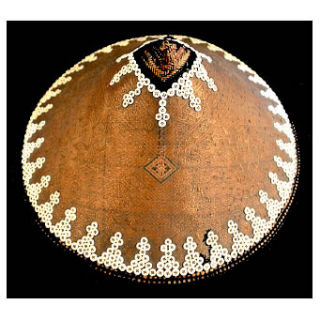In describing her work with the Mongolian Quilting Center, islander Maggie Ball recalls an idea Greg Mortenson discussed when he came to Bainbridge to talk about his book, “Three Cups of Tea”:
“If you help a man, you help an individual; if you help a woman, you help a whole family.”
Mortenson’s sentiments stemmed from work he did in the remote mountains of Afghanistan, building schools for girls. They resonated so strongly with Ball because when she heard the author speak, she herself was in the midst of an effort to give women in a region of the world far removed from her own the tools they needed to thrive.
In 2004, a young Mongolian lawyer, Selenge Tserendash, contacted 70 quilters in the U.S. about helping to set up a women’s quilting center in the city of Ulaanbaatar. Through quilting, she hoped to give them a viable skill that would help them make a living in a country with high rates of unemployment and alcoholism, and few support systems for women.
The center was in place; what Tserendash needed were teachers. Of all the women she contacted in the West, Ball was the single person who responded affirmatively.
In 2004, Ball and her 21-year-old daughter visited the newly opened center. She found her pupils eager, creative, and talented; over time, they evolved from creating basic traditional motifs, to pictorial quilts of Mongolian scenes. And they did so amidst increasingly difficult working conditions; the first quilting center closed down shortly after opening because of funding issues, so they moved into a basement with sub-standard heating and ventilation.
As the Mongolian quilters’ work has evolved, so has the fund-raising efforts surrounding them. St. Barnabas Episcopal Church took on Quilters Without Borders as an outreach effort, and Ball and Tserendash have established a goal of purchasing a new structure to serve as a full-blown community center offering not just quilting classes but health care, computing and language classes, child care and free or low-cost legal services.
And that is where George Sterling came in; on hearing of Ball’s effort, he was one of the parishioners who stepped in with a creative fundraising idea.
While the pieces in Sterling’s collection don’t come from Mongolia, the long-time importer and collector of indigenous handicrafts has always had an interest in Asian art and crafts, both from an aesthetic and an economic standpoint. Baskets, in particular, fascinate him since not only do they combine beauty and function, but because their producion can support a flexible work model for the craftspeople.
Which is perfectly in keeping with Ball’s hopes for Quilters Without Borders, too.
“I’ve put my heart in this, and I’m absolutely thrilled with how the women have progressed and how the center has grown, and with how many women they’ve been able to reach out and help,” she said.
============
Support a way of life
George Sterling’s collection of tribal art will be on display Aug. 23 and 24 at Yonder, 15710 Euclid Ave, with an opening celebration from 6-9 p.m. Aug. 22. Friday’s tickets, $100, are at St. Barnabas Episcopal Church. Proceeds benefit Quilters without Borders; see www.dragonflyquilts.com.


